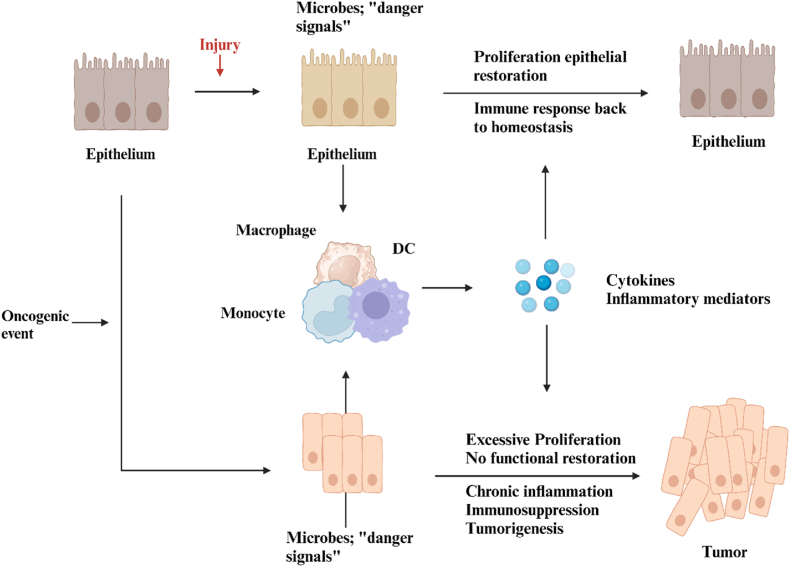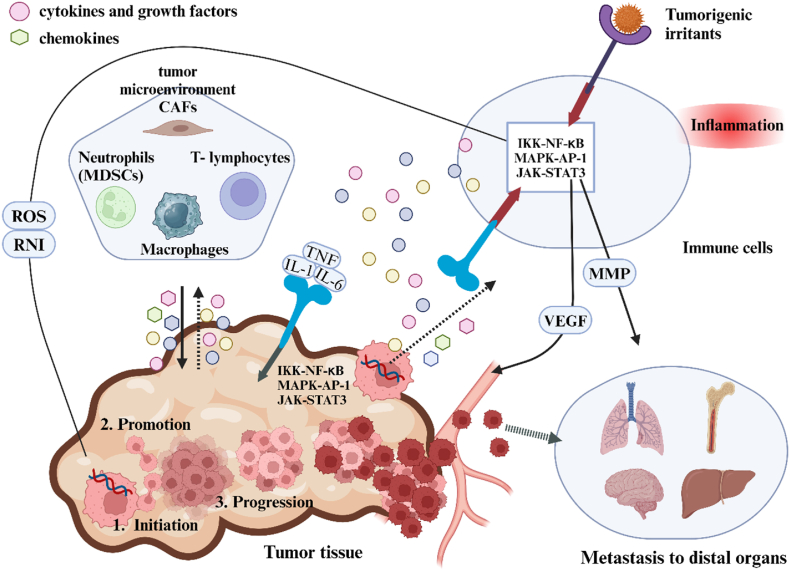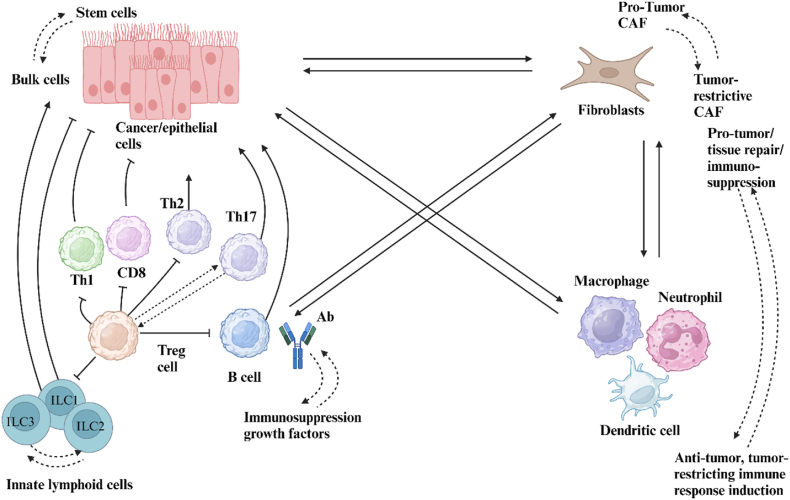Unveiling the link between chronic inflammation and cancer
IF 2.7
引用次数: 0
Abstract
The highly nuanced transition from an inflammatory process to tumorigenesis is of great scientific interest. While it is well known that environmental stimuli can cause inflammation, less is known about the oncogenic modifications that chronic inflammation in the tissue microenvironment can bring about, as well as how these modifications can set off pro-tumorigenic processes. It is clear that no matter where the environmental factors come from, maintaining an inflammatory microenvironment encourages carcinogenesis. In addition to encouraging angiogenesis and metastatic processes, sustaining the survival and proliferation of malignant transformed cells, and possibly altering the efficacy of therapeutic agents, inflammation can negatively regulate the antitumoral adaptive and innate immune responses. Because chronic inflammation has multiple pathways involved in tumorigenesis and metastasis, it has gained recognition as a marker of cancer and a desirable target for cancer therapy. Recent advances in our knowledge of the molecular mechanisms that drive cancer's progression demonstrate that inflammation promotes tumorigenesis and metastasis while suppressing anti-tumor immunity. In many solid tumor types, including breast, lung, and liver cancer, inflammation stimulates the activation of oncogenes and impairs the body's defenses against the tumor. Additionally, it alters the microenvironment of the tumor. As a tactical approach to cancer treatment, these findings have underscored the importance of targeting inflammatory pathways. This review highlights the role of inflammation in cancer development and metastasis, focusing on its impact on tumor progression, immune suppression, and therapy resistance. It examines current anti-inflammatory strategies, including NSAIDs, cytokine modulators, and STAT3 inhibitors, while addressing their potential and limitations. The review emphasizes the need for further research to unravel the complex mechanisms linking inflammation to cancer progression and identify molecular targets for specific cancer subtypes.



揭示慢性炎症和癌症之间的联系。
从炎症过程到肿瘤发生的高度微妙的转变引起了极大的科学兴趣。众所周知,环境刺激可引起炎症,但对组织微环境中的慢性炎症可带来的致癌修饰以及这些修饰如何引发促肿瘤过程知之甚少。很明显,无论环境因素来自哪里,维持炎症微环境都会促进癌变。除了促进血管生成和转移过程,维持恶性转化细胞的生存和增殖,并可能改变治疗药物的疗效外,炎症还可以负向调节抗肿瘤适应性和先天免疫反应。由于慢性炎症在肿瘤发生和转移过程中有多种途径参与,它已被公认为癌症的标志物和癌症治疗的理想靶点。最近我们对驱动癌症进展的分子机制的了解表明,炎症促进肿瘤的发生和转移,同时抑制抗肿瘤免疫。在许多实体肿瘤类型中,包括乳腺癌、肺癌和肝癌,炎症刺激致癌基因的激活,损害身体对肿瘤的防御。此外,它改变了肿瘤的微环境。作为癌症治疗的一种战术方法,这些发现强调了靶向炎症途径的重要性。本文综述了炎症在癌症发展和转移中的作用,重点关注其对肿瘤进展、免疫抑制和治疗抵抗的影响。研究了当前的抗炎策略,包括非甾体抗炎药、细胞因子调节剂和STAT3抑制剂,同时指出了它们的潜力和局限性。该综述强调需要进一步研究,以揭示炎症与癌症进展之间的复杂机制,并确定特定癌症亚型的分子靶点。
本文章由计算机程序翻译,如有差异,请以英文原文为准。
求助全文
约1分钟内获得全文
求助全文
来源期刊

Metabolism open
Agricultural and Biological Sciences (General), Endocrinology, Endocrinology, Diabetes and Metabolism
自引率
0.00%
发文量
0
审稿时长
40 days
 求助内容:
求助内容: 应助结果提醒方式:
应助结果提醒方式:


